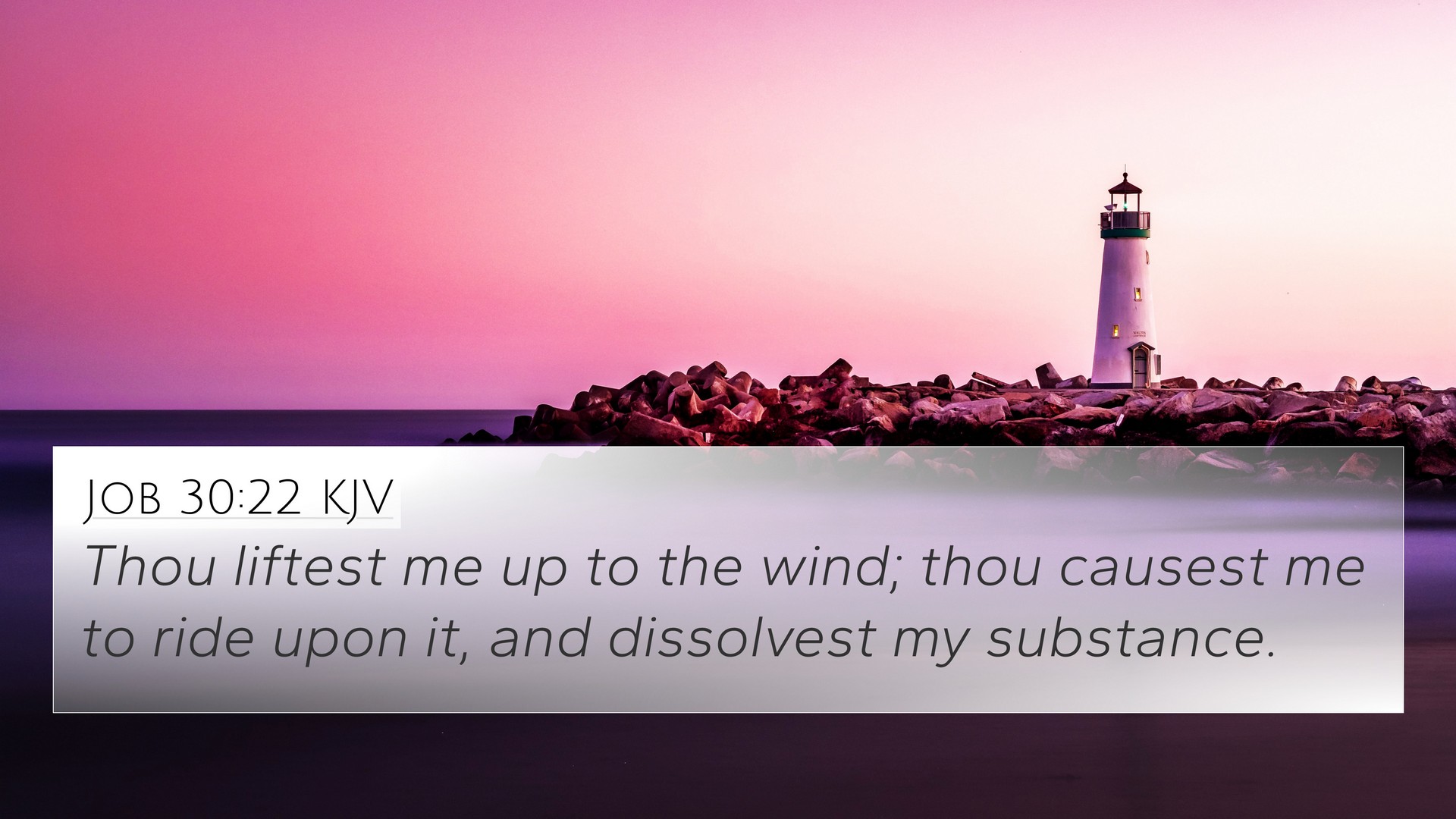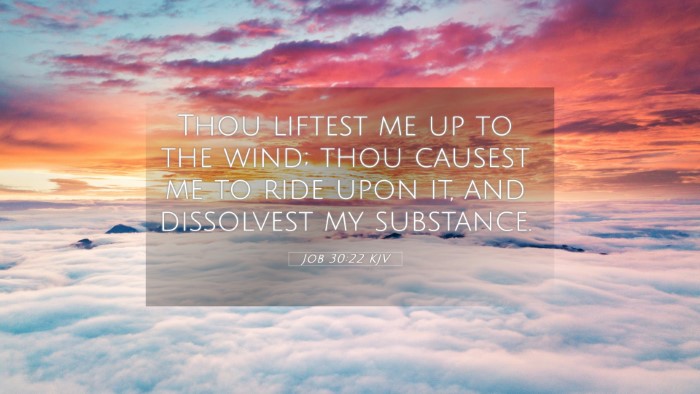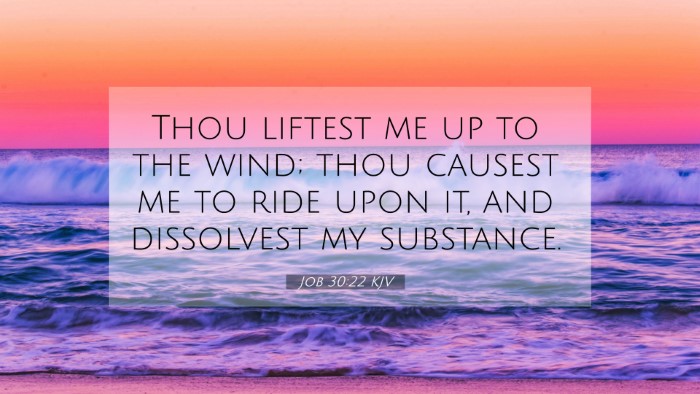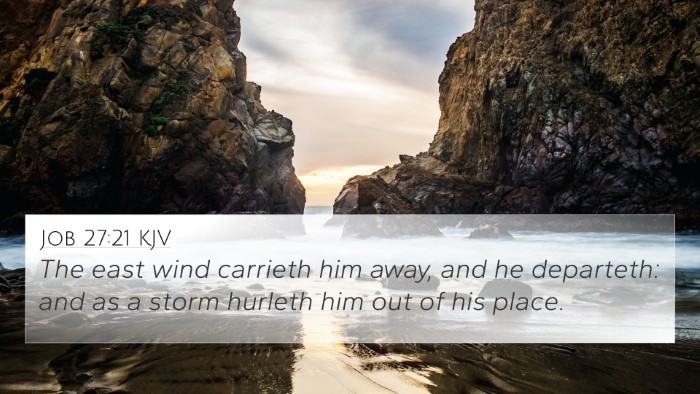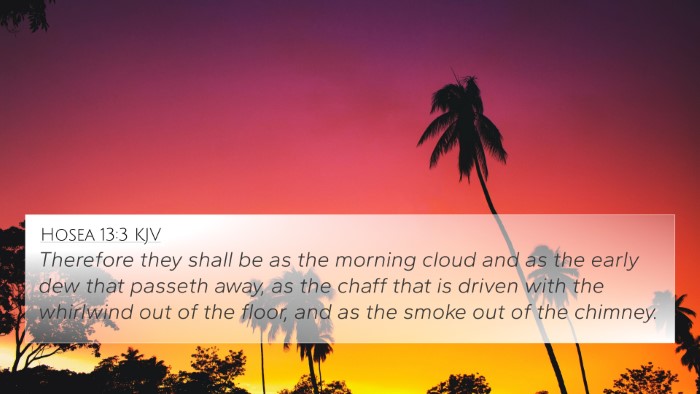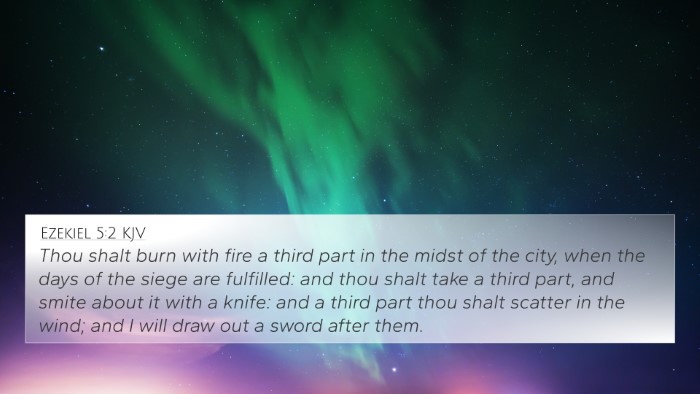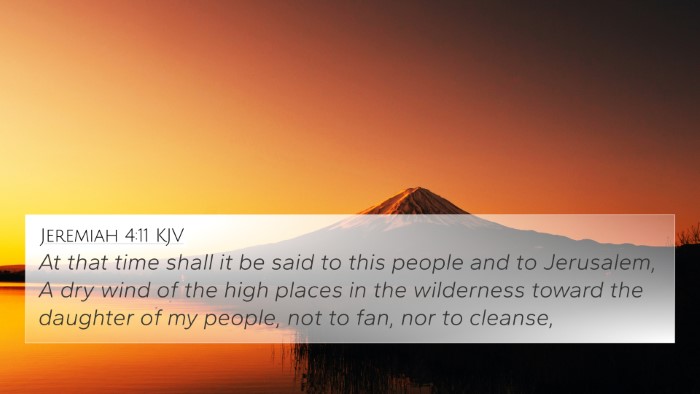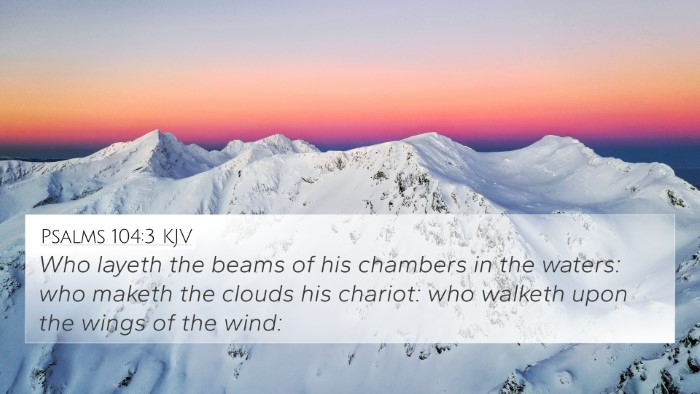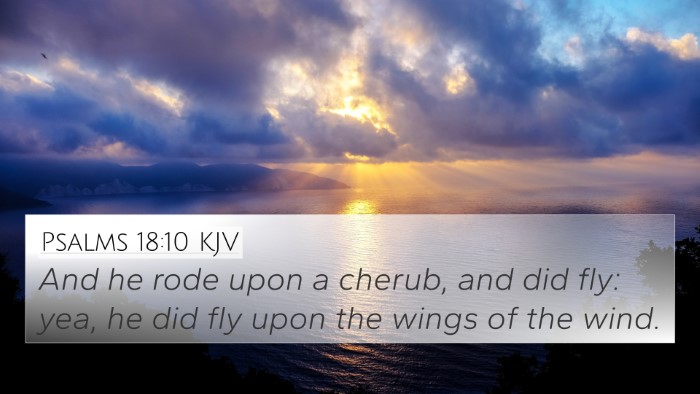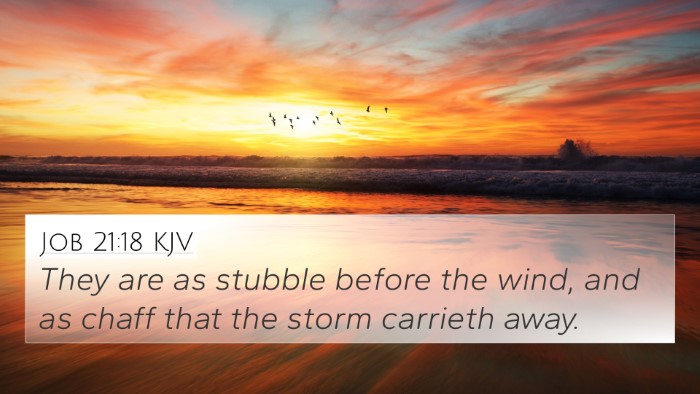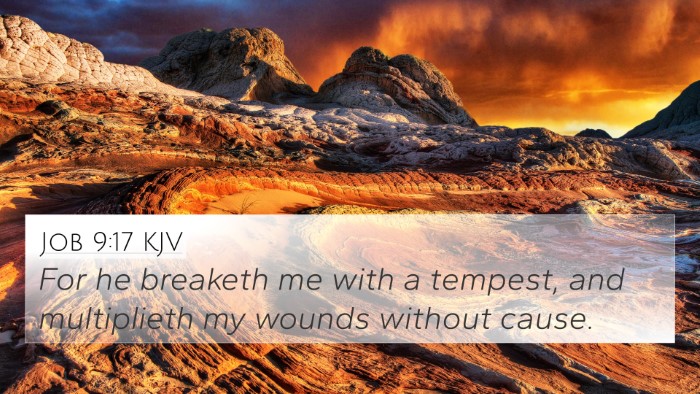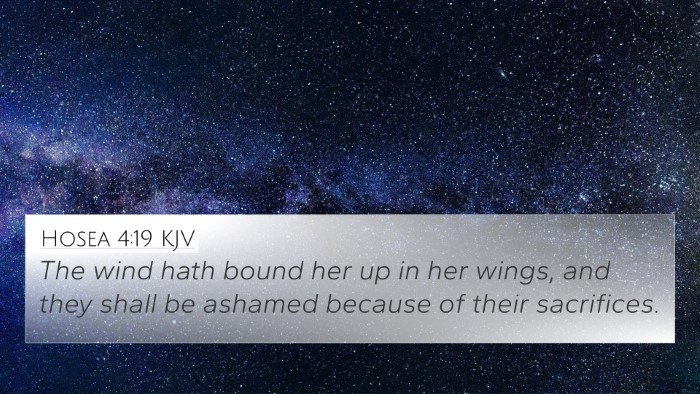Understanding Job 30:22
Job 30:22 states, "For You lift me up to the wind and cause me to ride; and You toss me about in the storm." This verse addresses Job's sentiments of abandonment and utter helplessness in distressing situations.
This passage captures Job's feeling that God has allowed him to endure intense suffering and turbulence in his life. It is a poignant reflection on the trials he faces and highlights the sense of being at the mercy of forces beyond his control.
Summary of Insights
-
Divine Sovereignty:
Commentators like Matthew Henry emphasize that the verse illustrates God's supreme authority over nature and human affairs. Job feels like he is being tossed around not just by natural forces but by divine choice.
-
Human Vulnerability:
According to Albert Barnes, this passage reflects the frailty of human beings, revealing how easily one can feel overwhelmed by life’s uncertainties, akin to being swept away by a storm.
-
Existential Crisis:
Adam Clarke notes that Job's language evokes a dramatic crisis of faith, particularly highlighting the emotional toll of feeling abandoned by God even amidst calamity.
Thematic Connections and Cross-References
The plight described in Job 30:22 resonates with several other passages in the Bible, revealing connections between biblical texts that can offer deeper insight into Job's situation.
Cross-References for Enhanced Understanding
- Psalms 77:19: "Your way was in the sea, your path in the great waters; and your footsteps were not known." This verse echoes the conflict between God's mysterious ways and human suffering.
- Isaiah 43:2: "When you pass through the waters, I will be with you; and through the rivers, they shall not overwhelm you." This emphasizes divine presence in the face of turbulence.
- James 1:6: "But let him ask in faith, with no doubting, for the one who doubts is like a wave of the sea that is driven and tossed by the wind." Here, the imagery of the sea evokes feelings of instability.
- Matthew 8:24-26: The calming of the storm exemplifies Jesus’ authority over chaos, suggesting a stark contrast to Job's experience.
- Ecclesiastes 1:14: "I have seen everything that is done under the sun, and behold, all is vanity and a striving after wind." This reflects existential despair that parallels Job’s lament.
- Psalms 18:16: "He sent from on high, he took me; he drew me out of many waters." Offers hope of rescue from trials, contrasting Job's feelings of abandonment.
- Jonah 2:3: "For you cast me into the deep, into the heart of the seas, and the flood surrounded me; all your waves and your billows passed over me." This captures a similar sentiment of desperation when faced with overwhelming forces.
Inter-Biblical Dialogue
The connections between these scriptures create a thematic dialogue across the Bible that provides insight into suffering and God's involvement in human affairs.
Tools for cross-referencing biblical texts can enhance understanding, as each verse can reflect on and illuminate others. For instance, a Bible concordance can help identify themes of divine testing and deliverance that permeate both Old and New Testament writings.
Comparative Analysis
Through a comparative analysis of these passages, one can observe the consistent themes of divine intervention, human despair, and eventual hope in the face of trials. The biblical narratives frequently employ the metaphor of storms and winds to illustrate life's tumultuous nature.
Conclusion
Job 30:22 serves as a profound reminder of the complexities of faith, suffering, and the human condition. By linking this verse with others, we can gain a richer understanding of biblical teachings related to hardship and divine providence.
